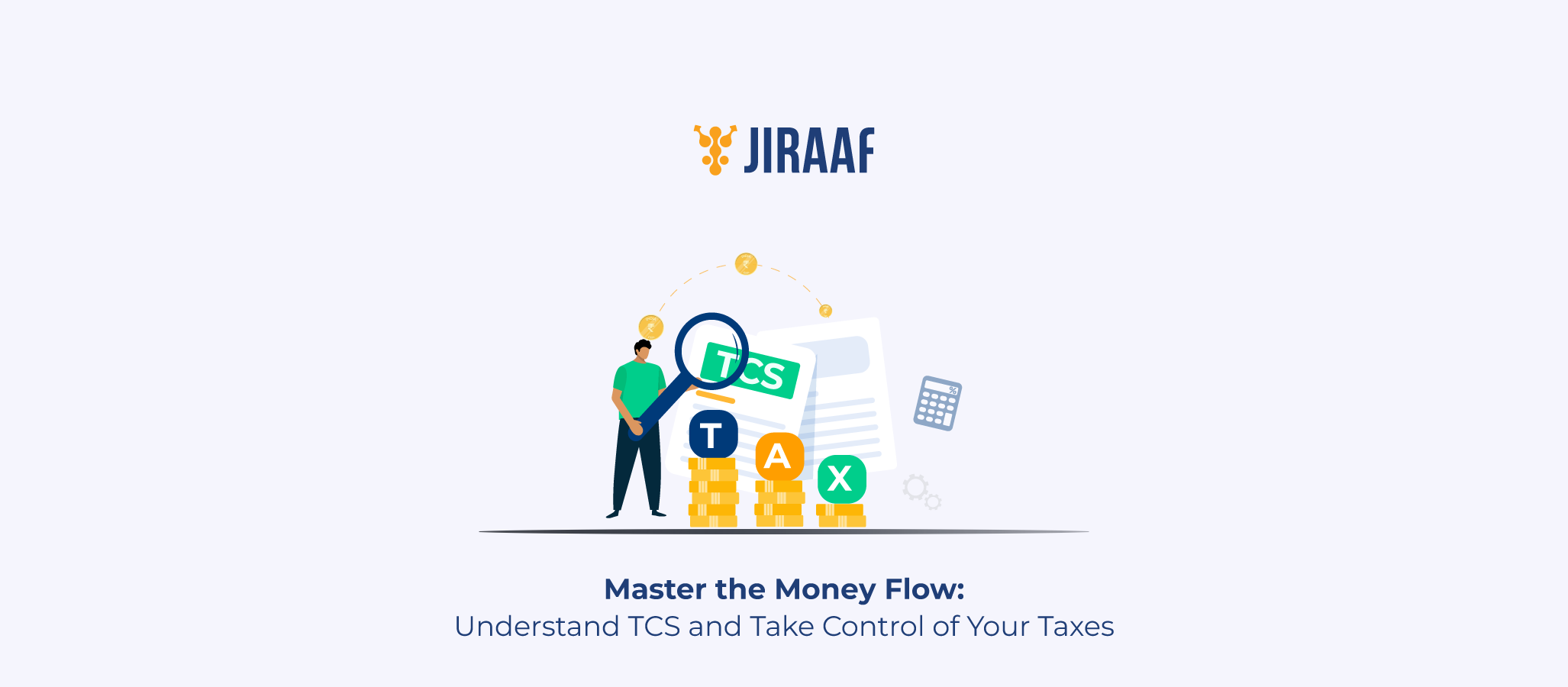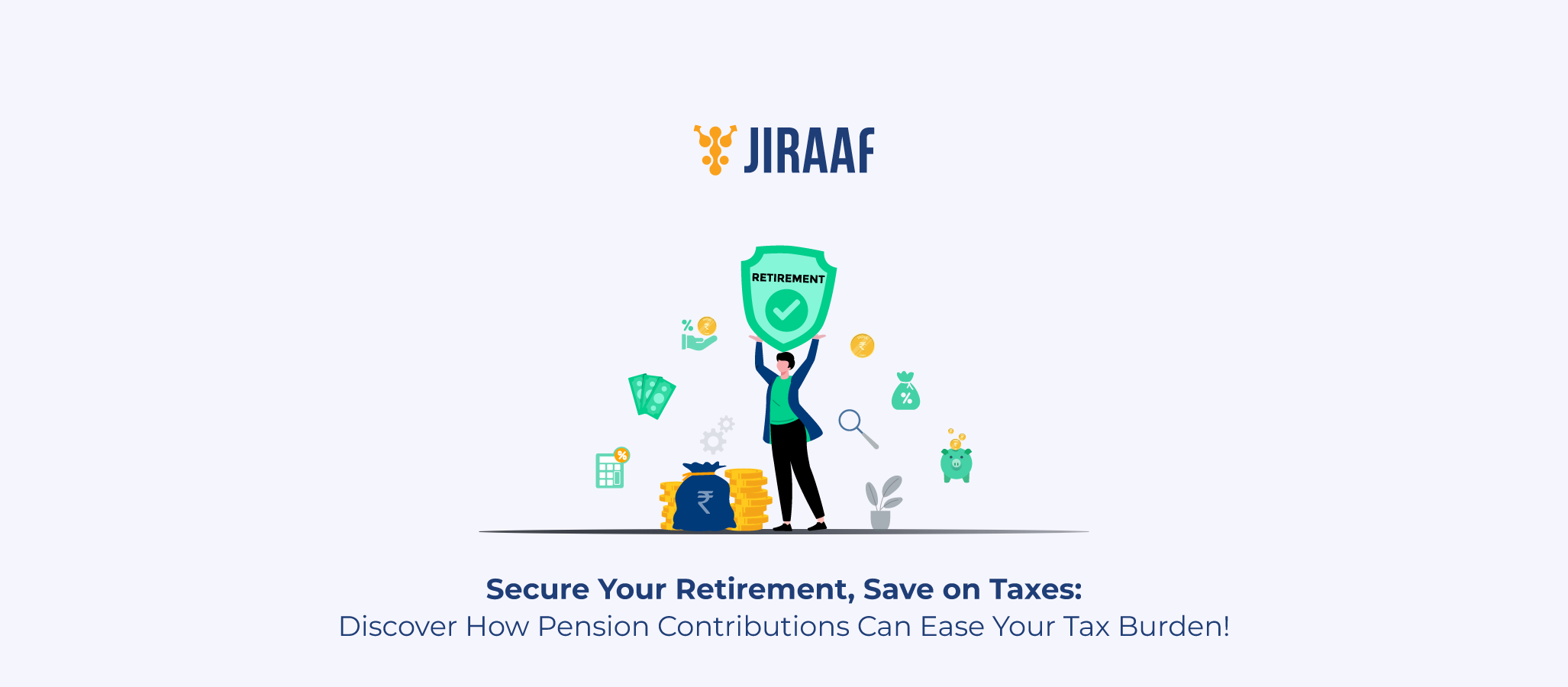Ever noticed an additional tax on your bill when you buy a car or book an international tour—one that isn’t GST? That’s likely Tax Collected at Source (TCS). While it might seem like just another charge, it actually plays a big role in how income tax works in India and affects you directly as a taxpayer. Whether you’re a business collecting TCS or a buyer wondering how to claim it back, understanding how it works can save you from confusion, penalties, and missed refunds.
In this blog, you’ll decode what TCS really means, how it’s calculated, who needs to pay or collect it, and how it fits into your overall tax filing process. Let’s simplify the jargon and turn TCS into something you can confidently handle.
What is TCS in Income Tax?
You know how shops charge GST when you buy anything? What if we told you that the seller also collects another tax on behalf of the government while selling certain goods or services, called Tax Collected at Source?
TCS is a mechanism under the Income Tax Act, 1961, where the seller collects tax from the buyer at the time of sale and deposits it with the government. It applies to specific transactions such as the sale of scrap, timber, minerals, motor vehicles, foreign remittances, overseas tour packages, and more.
This tax isn’t just a formality—it ensures a steady inflow of tax revenue to the government and also brings high-value transactions into the tax net. If you’re a buyer, TCS collected from you is added to your total tax paid and can be claimed as a credit when filing your income tax return.
TCS Full Form and Meaning in Taxation
As mentioned earlier, TCS stands for Tax Collected at Source. It’s the tax collected by a seller from the buyer at the time of sale of specific goods or provision of certain services, as notified under the Income Tax Act.
Here’s how it works in simple terms.
Let’s say you’re buying a foreign travel package worth ₹5 lakh. The tour operator collects 5% TCS (₹25,000) from you. That ₹25,000 is deposited with the Income Tax Department under your Permanent Account Number (PAN). When you file your tax return, this TCS is reflected in your Form 26AS and reduces your overall tax liability.
This mechanism acts as a surveillance and compliance tool for the government—ensuring that large and reportable transactions are traced and taxed appropriately.
Who is Liable to Collect TCS?
You may wonder—who exactly is supposed to collect TCS?
Under Section 206C of the Income Tax Act, any seller involved in specified goods or services must collect TCS from the buyer and deposit it with the government.
Here’s a breakdown of who’s liable.
Sellers
- Central and state governments
- Local authorities
- Statutory corporations or authorities
- Companies
- Partnership firms
- Co-operative societies
- Any individual/Hindu Undivided Family (HUF) whose total sales or turnover exceed ₹1 crore (for goods) or ₹50 lakh (for services) in the previous financial year
Buyers
A buyer is anyone who purchases the specified goods or services. However, certain exemptions exist—for example, government bodies, embassies, and public sector companies may be exempt from TCS.
The seller must have a valid Tax Deduction and Collection Account Number (TAN) and deposit the TCS to the central government within the due date, typically the 7th of the following month.
TCS Tax Rates for FY 2025–26
TCS rates vary depending on the type of transaction. Here’s a helpful snapshot of TCS rates applicable for financial year 2025–26.
| Nature of Transaction | TCS Rate | Threshold Limit |
| Sale of alcoholic liquor for human use | 1% | No threshold |
| Sale of timber obtained under forest lease | 2.5% | No threshold |
| Sale of scrap | 1% | No threshold |
| Sale of minerals (coal, lignite, iron ore) | 1% | No threshold |
| Sale of motor vehicle > ₹10 lakh | 1% | Per transaction |
| Overseas tour package | 5% | No threshold |
| Foreign remittance under LRS (> ₹7 lakh) | 20%* | After ₹7 lakh in a FY |
| Sale of goods (Section 206C(1H)) | 0.1% | Turnover > ₹10 crore, sale > ₹50 lakh to buyer |
*Note: The 20% TCS rate on foreign remittances (not for education/medical purposes) was introduced to track high-value spending abroad.
Always verify updated rates before planning a transaction, as the government may revise them in the annual Finance Act.
TCS vs TDS: What’s the Difference?
| Feature | Tax Deducted at Source | Tax Collected at Source |
| Who deducts/collects it? | Payer (e.g., employer, bank) | Seller of goods/services |
| When is it applied? | While making a payment | While receiving a payment |
| On whom is it applicable? | Receiver of income | Buyer of goods/services |
| Examples | Salary, interest, rent, commission | Sale of scrap, timber, tours, LRS |
| Forms used | Form 26Q, 24Q | Form 27EQ |
While both TDS and TCS aim to collect tax in advance, TDS is deducted from income, whereas TCS is collected on sales transactions. Both are adjusted against your final tax liability when you file your return.
How to Pay TCS Online? Step-by-Step Process
If you’re a seller responsible for collecting TCS, here’s how to pay it online:
Step 1: Log in to the NSDL (TIN) website
Visit https://onlineservices.tin.egov-nsdl.com
Step 2: Choose Challan No./ITNS 281
This form is used for paying TDS/TCS. Select the option for TCS under ‘Type of Payment’.
Step 3: Fill in the Details
Provide:
- TAN of the deductor/collector
- Financial year
- Assessment year
- Mode of payment (Net banking/debit card)
- Nature of payment (as per TCS section)
- Amount of TCS collected
Step 4: Make the Payment
Use your preferred bank’s net banking platform to complete the transaction.
Step 5: Get Receipt
After successful payment, you’ll receive a Challan Identification Number (CIN), which should be used while filing your TCS returns.
Pro Tip: Keep all records and receipts organized. Non-payment or late payment can attract interest and penalties.
How to Claim TCS in Income Tax Return?
If you’ve paid TCS while buying a product or service (like a motor vehicle or overseas travel package), don’t worry—you can claim that amount as a tax credit while filing your income tax return.
Here’s how you do it:
- Check Form 26AS or AIS: These documents reflect all TCS collected under your PAN.
- File Your ITR: Choose the right ITR form (based on your income type).
- Enter TCS Details: Under the ‘TDS/TCS’ section of the return, mention the amount collected and deposited.
- Adjust Against Liability: The TCS amount is adjusted against your total tax payable. If excess tax is collected, you get a refund.
- Submit & Verify: E-verify your return using OTP, Aadhaar, or net banking.
That’s it—you’re good to go. The refund, if any, will be credited directly to your bank account.
Conclusion
TCS may not be something you deal with every day, but it definitely pays to understand how it works—especially if you’re planning big purchases, foreign travel, or running a business that involves the sale of taxable goods. It’s one of those areas where awareness can directly lead to better tax planning and smoother compliance.
Whether you’re a buyer making high-value payments or a seller managing statutory obligations, TCS isn’t just about compliance—it’s about being proactive with your money. Keep an eye on your Form 26AS, claim what’s rightfully yours, and make sure your taxes don’t become a last-minute stress-fest.
Because when you know what to expect, you’re not just saving tax—you’re staying one step ahead.
FAQs
What is the full form of TCS in income tax?
TCS stands for Tax Collected at Source. It’s a tax that the seller collects from the buyer at the time of sale for specific goods or services and then deposits it with the government. This helps track high-value transactions and ensures tax compliance for both buyers and sellers.
When is TCS applicable?
TCS is applicable when you buy certain goods or services specified by the Income Tax Act, such as scrap, minerals, motor vehicles above ₹10 lakh, foreign tours, or when making foreign remittances over ₹7 lakh in a year. The seller or service provider collects this tax from you at the time of the transaction and deposits it with the government.
Can I claim TCS on my income tax return?
Yes, you can claim TCS as a tax credit when filing your income tax return. The TCS amount collected from you is reflected in your Form 26AS or Annual Information Statement (AIS). When you file your return, this tax credit reduces your overall tax liability, and if excess tax is collected, you may receive a refund.
What’s the difference between TCS and TDS
TCS (Tax Collected at Source) is collected by the seller from the buyer during specific sales, while TDS (Tax Deducted at Source) is deducted by the payer before making certain payments like salary or interest. Simply put, TCS is collected on sales transactions, and TDS is deducted on income payments—both help the government track and collect tax in advance.
Discover fixed income investments with Jiraaf, a SEBI registered online bonds platform that educates and brings access to a wide array of bonds. Sign up today to explore diversified fixed income investment opportunities to support your goal-based wealth creation journey. Start investing!



